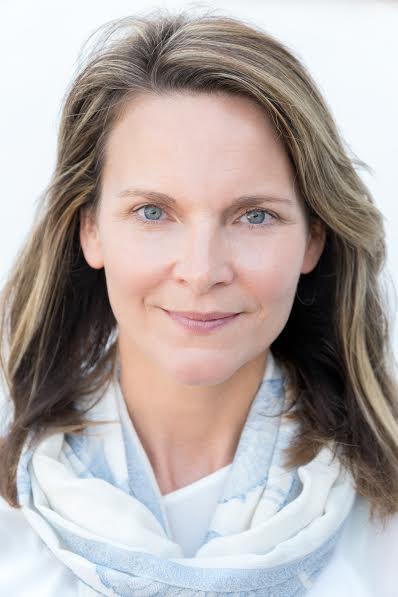
Climate catastrophes hit headlines again this month with a stretch of days hotter than Earth’s inhabitants have encountered in over 120,000 years. In fact, Prof. James Hansen, whose well-known in climate conscious circles for testifying before the U.S. Senate Energy committee in 1988 with the warning that “the greenhouse effect has been detected and it is changing our climate now,” yet again sounded the alarm. This time he called us “damned fools” for not responding appropriately to climate change.
With his colleagues, Hansen of the Earth Institute at Columbia predicts accelerated warming in the near future due to unchecked fossil fuel emissions and warns that we’ll soon cross heat thresholds not experienced on Earth in a million years. Humans will encounter hotter days than they could have ever imagined and at worst will not survive.
Please, I beg you, don’t stop reading my column. I’ve got encouraging news for you.
In “Not Too Late: Changing the Climate Story from Despair to Possibility (2023)” Rebecca Solnit with Thelma Young Lutunatabua edited a collection of contributions to the climate conversation that affirm my sincere conviction: Fear fuels despair, while caring deeply inspires the right action of repair, regeneration and hope.
And I strongly believe that the cure to the climate crisis is embedded in repairing relationships. Acting out of urgency, making decisions out of fear, we make mistakes. But stepping into thoughtful action because we care deeply can make an enormous difference for the better. The time is now. We have to reconnect with the living beings in our neighborhood, both human and other than human.
Do you know who’s living and breathing with you in your community? In order to notice, we must take the time to cherish one another. We must take the time to learn about how our world is changing and who’s worst affected. When we know the name of one another we have an opportunity to care.
Many smartphone applications are now available for you to get to know, not just the people, but the plants, insects and animals in your neighborhood. Our world is changing faster than any group of scientists can record, so I invite you to become citizen scientists and document the climate-induced changes you’re observing with iNaturalist, a free smartphone application for mapping your observations in the natural world. When you get to know the name and “On the Origin of Species,” something changes within you. When we strengthen and deepen our relationship with nature, we find that we have what it takes to prevent catastrophic climate change.
Trees model clean energy production for us. In nature nothing goes to waste, circular economy is the norm. We can learn everything we need to know to thrive in a changing climate if we just take the time to pause, look, listen and learn. We will discover that our more than human neighbors are working hard to adapt and survive with us in a changing world and biomimicry is just one of many nature-based climate solutions out there.
Instead of succumbing to nihilism so prevalent in our culture, discover your ability to care deeply and repair your personal relationship to nature. Spending time in nature is essential. This summer explore Long Island beaches, not just for recreation and sunbathing, but also for learning about the piping plovers and other feathered friends there. Notice how the native vegetation is combating erosion and discover ways to rewild and bind the soil while restoring health to coastal ecosystems.
Discover non-polluting, non-extractive, non-consumptive ways to enjoy life. Taking the time to enjoy the sunset, or waking up early enough to witness the sunrise, are ways to reconnect with the natural cycles. Using less of everything is the best way today to combat climate change.
This summer slow down, walk, bike, hike, reuse, refill, reduce pollution in any which way you can and get to know your environment and all the beings who share natural resources with you. This is how we weave our way back into the ecosystem we rely on for breathing and living. We need to repair the relationship we have with the living world if we are to stand a fighting chance to save ourselves.
We must slow down enough to be highly selective about our consumption and insist on climate friendly products. It’s not enough to wear organic clothing if it’s made by fossil- fueled industries and transported long distances. We can reduce pollution by, for instance, using plastic free SuperZero shampoo bars or TruEarth biodegradable laundry strips (there are many other brands; I’m just naming these because I am very happy with them). Be creative and selective about the daily products you use and look up the least polluting alternatives.
Most importantly, vote for proactive people who promise to reduce pollution and transition away from fossil fuels. We need to make drastic changes both personally and politically. Cultural change is only possible if we start today with changing our habits.
The biosphere responds quickly to favorable changes. We can start making changes for the better and easily expect amplified returns. Share with us your climate solutions here in the comments section online or send a letter to the editor. Climate solutions are countless. Ask yourself: What’s standing in the way of their implementation?
Do we need to wait for worse air quality, warmer winters, hotter summers and the next superstorm, or can we start changing our habits today and tip the scales back towards viability? According to WFLA Chief Meteorologist and Climate Specialist Jeff Berardelli: “…unlike a terminal illness, we know exactly what the problem is, we know exactly how to fix it, and we have all the solutions we need now. What is required is that we pay attention and get serious — quickly. Our future depends on it.”






